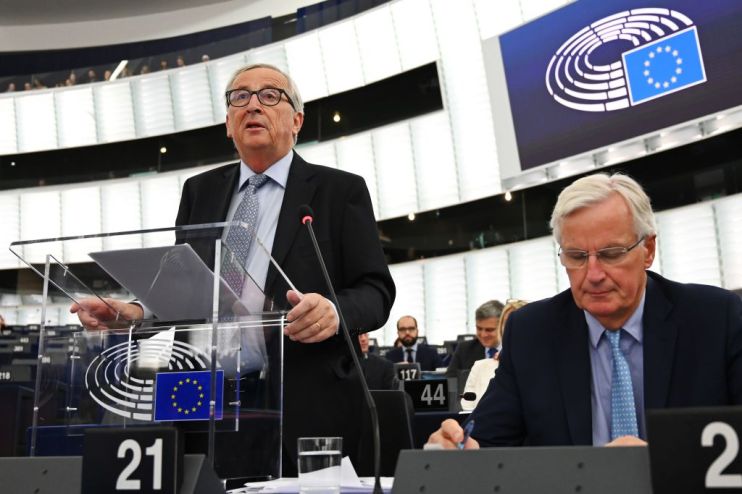Pound falls back below $1.25 after earlier rising on Juncker’s Brexit comments

The sterling has fallen back below the $1.25 barrier despite rising earlier today on hopes of a breakthrough in Brexit negotiations.
The pound has fallen by 0.34 per cent to 1.248 on the back of a strong dollar, which in turn weakens the pound.
The fall has undone some of the pound’s gains from yesterday and this morning, which saw it rise to 1.256.
The jump came following comments from European Commission President Jean-Claude Juncker that suggested a deal between the EU and UK could be agreed.
Read more: Brexit: UK submits non-papers to EU
Juncker told Sky News: “I think we can have a deal. I am doing everything to have a deal because I don’t like the idea of a no-deal because I think this would have catastrophic consequences for at least one year.”
He added: “Brexit will happen.”
The 64-year-old also revealed that Prime Minister Boris Johnson had sent him draft ideas outlining proposals for a new Brexit deal, though he had yet to look at them
Brexit secretary Stephen Barclay will meet EU chief negotiator Michel Barnier later today to “take stock” of the progress made, his department said.
The pound was up 0.27 per cent against the dollar this morning, and had also risen by 0.25 per cent against the euro to 1.137.
That has also now dropped to 1.132, losing its early morning gains.
The comments from the former Luxembourg Prime Minister come after he met with Johnson earlier this week for the first time to discuss Brexit.
He described those talks as “positive” and admitted a solution was likely to be based on a backstop alternative such as Northern Ireland adhering to EU rules on food and agriculture, while other checks are completed away from the border.
“It is the basis of a deal. It is the starting and the arrival point,” he said. “The internal market has to be preserved in its entirety.”
Read more: Global growth to slump to lowest since financial crisis, says OECD
Juncker insisted he did not have “an erotic relation to the backstop” but said the EU would require “alternative arrangements allowing us and Britain to achieve the main objectives of the backstop.”
When asked if the backstop could be removed from the withdrawal agreement, he said: “If the objectives are met – all of them – then we don’t need the backstop.”